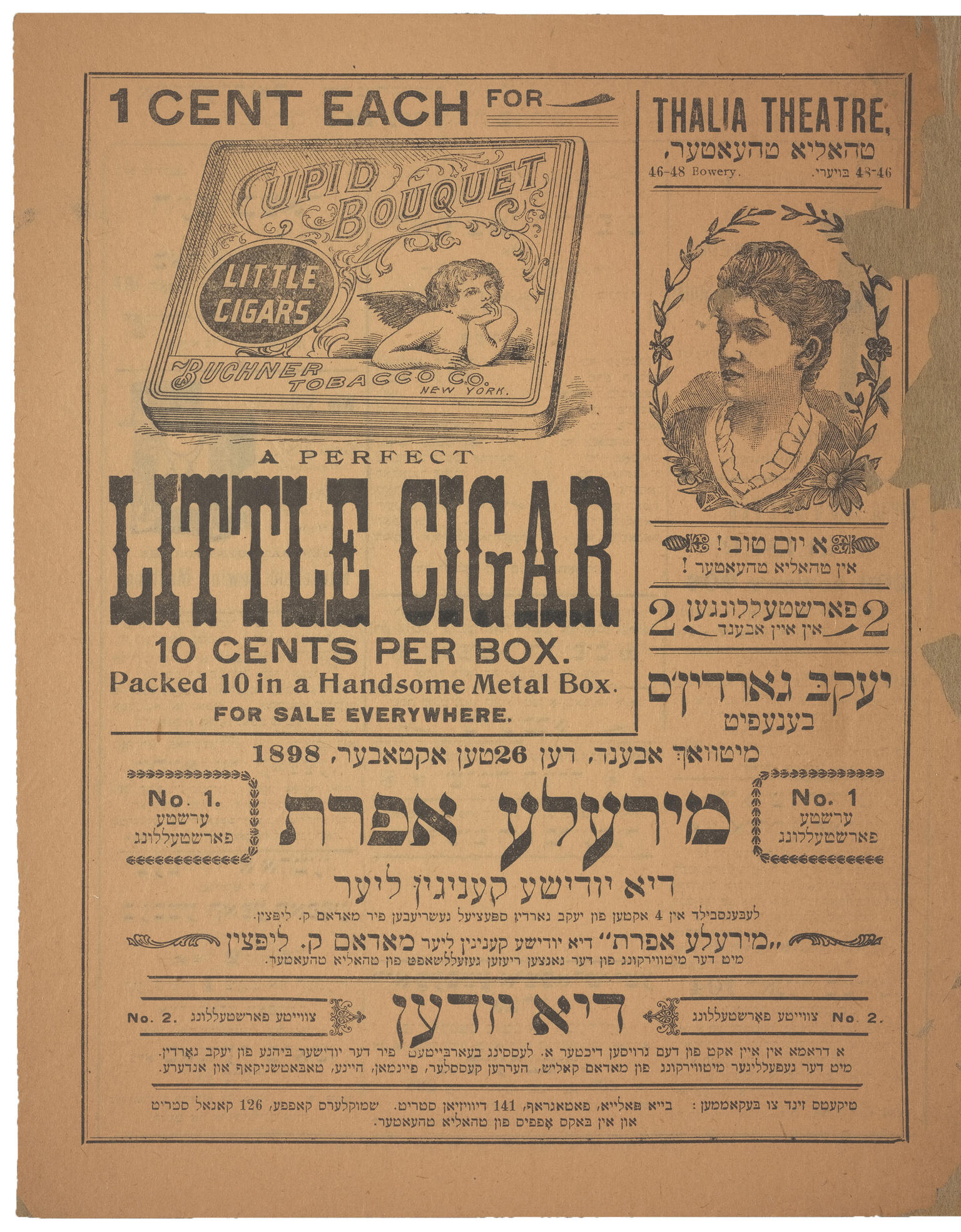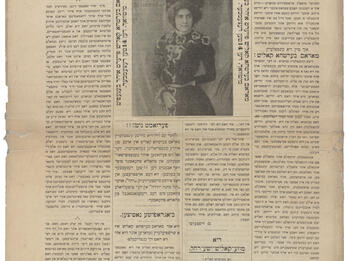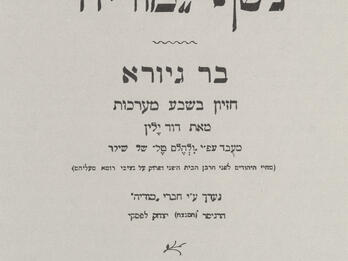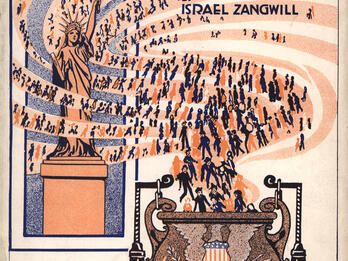Mirele Efros
Jacob Gordin
1898

Creator Bio
Jacob Gordin
Born in Mirgorod, Russian Empire (today Myrhorod, Ukraine) into a home that was both maskilic and Hasidic, Jacob Gordin received both a traditional and an enlightened education. As a teenager, he contributed to Russian-language newspapers such as Zarya, an organ of the Ukrainian independence movement. Around 1880, Gordin joined the Biblical Brotherhood, a sectarian religious sect that eschewed dogmatic ritual for humanitarian, Tolstoyan ethics and Christian-Jewish syncretism. In 1891, he left Russia with his wife and eight children for New York, where he found work writing in the Yiddish and Russian press and, soon thereafter, as a Yiddish playwright. Gordin’s plays were melodramas that integrated world literature with Jewish motifs and contemporary politics while avoiding the vaudeville and shund (lowbrow) tropes that largely constituted Yiddish theater at the time. He is thus regarded as a pioneer of serious dramatic writing in Yiddish, although his plays came to be seen as aesthetically limited and overly melodramatic already before World War I.
Places:
You may also like

Benefit Lunch with Bertha Kalich
Don Carlos at the Turn of the Century
Purim Eve, a One-Act Comedy

Alla Nazimova as Hedda Gabler

Announcement for Bar Giora Performance



